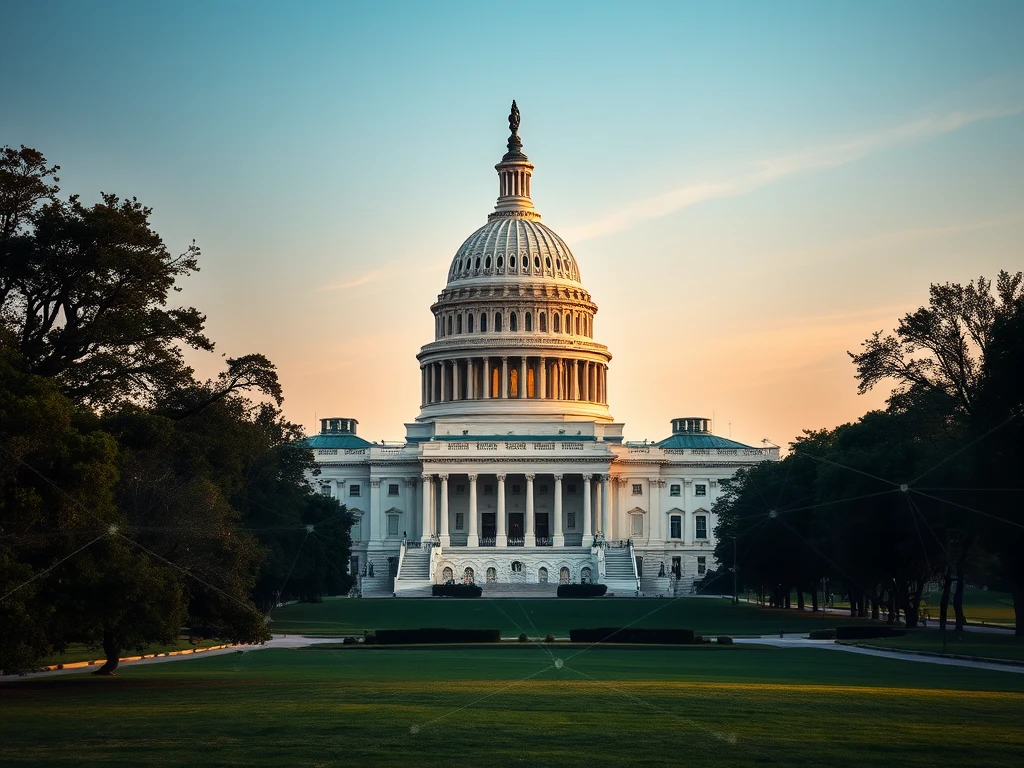Historic US Senate Vote Advances Stablecoin Bill

Big news from Washington D.C. for the crypto world! The US Senate has taken a significant step towards establishing a regulatory framework for digital currencies by passing the GENIUS Act, a key Stablecoin Bill.
The US Senate Approves GENIUS Act
In a vote of 68-30, the US Senate approved an amended version of the Guiding and Establishing National Innovation for US Stablecoins, or GENIUS Act. This vote occurred about six weeks after Senator Bill Hagerty introduced the legislation. The bill aims to position the United States as a leader in the growing crypto space.
Understanding the GENIUS Act and Crypto Regulation
Senator Hagerty stated the bill would allow businesses and individuals to settle payments much faster, potentially in moments rather than days or weeks. This focus on payment efficiency is a core part of the proposed Crypto Regulation under the GENIUS Act. The companion bill, the STABLE Act, is expected to be considered next in the House of Representatives, where it might see further amendment proposals.
Past Challenges and Political Opposition
The GENIUS Act faced hurdles before this successful vote. It failed a cloture vote in May due to Democratic opposition. A key point of contention has been US President Donald Trump’s connections to the crypto industry, specifically his family’s stake in World Liberty Financial, which issued its own USD1 Stablecoin. Critics called for amendments addressing these ties, but the bill passed without them.
Market Potential and Industry Interest in Stablecoins
The potential market for Stablecoin is significant. Treasury Secretary Scott Bessent recently projected the market could grow to $3.7 trillion by the end of the decade, a scenario he believes becomes more likely with the GENIUS Act’s passage. Reports indicate major companies like Apple, Google, X, and Airbnb have explored stablecoin possibilities. Meta is also mentioned as potentially having similar plans if the bill becomes law. Trump’s AI and crypto advisor, David Sacks, suggested the president would support a bill passed by a Republican-controlled Congress.
Related Regulatory Efforts: The CLARITY Act
While the Stablecoin Bill moves forward, lawmakers in the House are also considering the CLARITY Act. This separate bill aims to establish clear market structure rules for digital assets. Versions of the CLARITY Act recently passed House committees and await a floor vote. However, it faces similar political pushback related to concerns about the president’s crypto ties.
Criticism and Concerns Regarding the Legislation
Not everyone supports the GENIUS Act and related crypto bills. Bartlett Naylor, a financial policy advocate for Public Citizen, voiced strong opposition. He argued that by advancing these bills without addressing perceived conflicts of interest, lawmakers missed an opportunity to confront what he termed “Trump’s crypto grift.” Naylor suggested these bills could legitimize what he views as a “massive scam.”
Conclusion: What’s Next for US Stablecoin Regulation?
The Senate’s passage of the GENIUS Act marks a major step for US Crypto Regulation. While the bill still needs to pass the House and potentially face further amendments before becoming law, this vote signals growing momentum for establishing a federal framework for stablecoins. The debate over the bill highlights both the significant potential of stablecoins for the financial system and the complex political landscape surrounding cryptocurrency in the United States.









